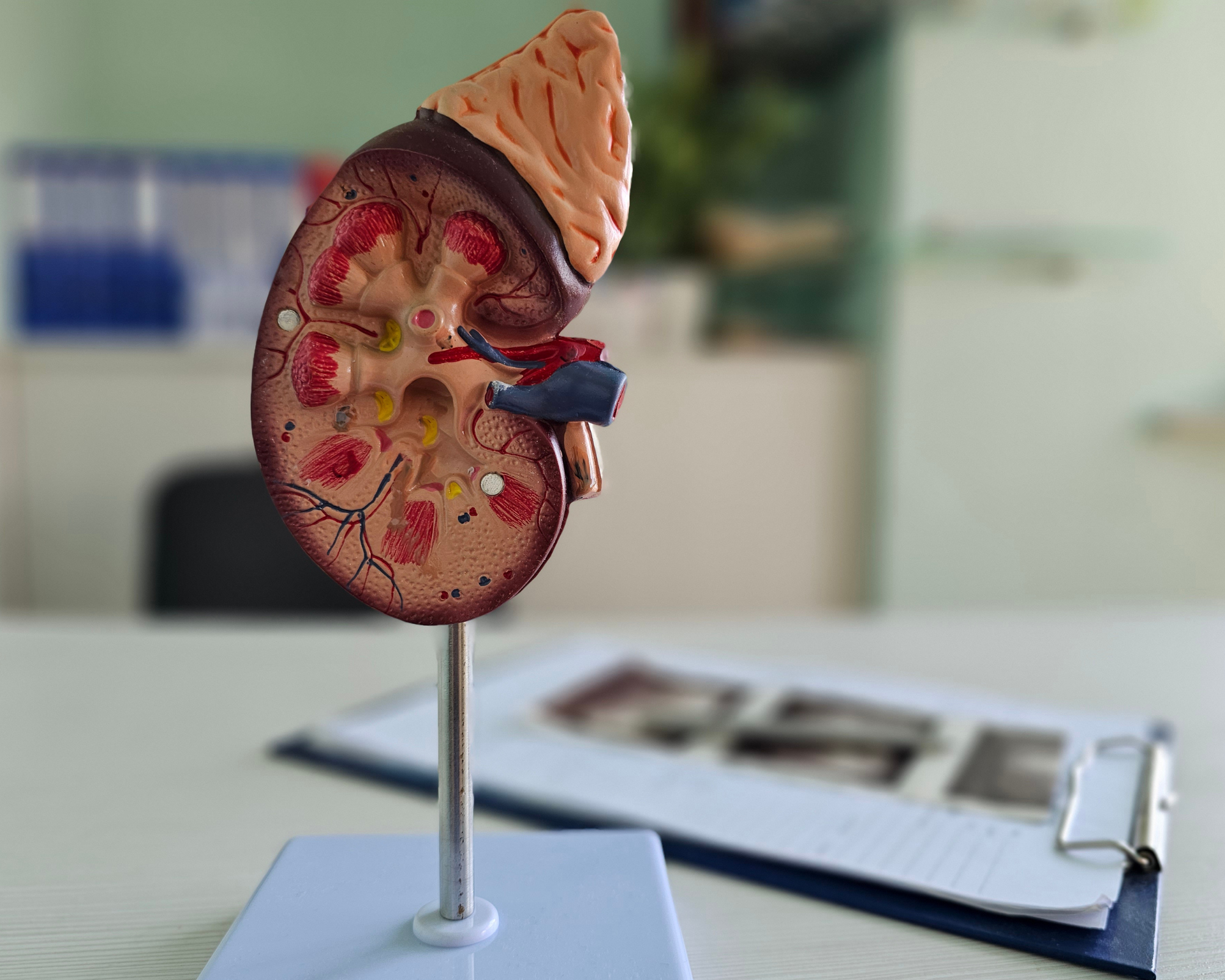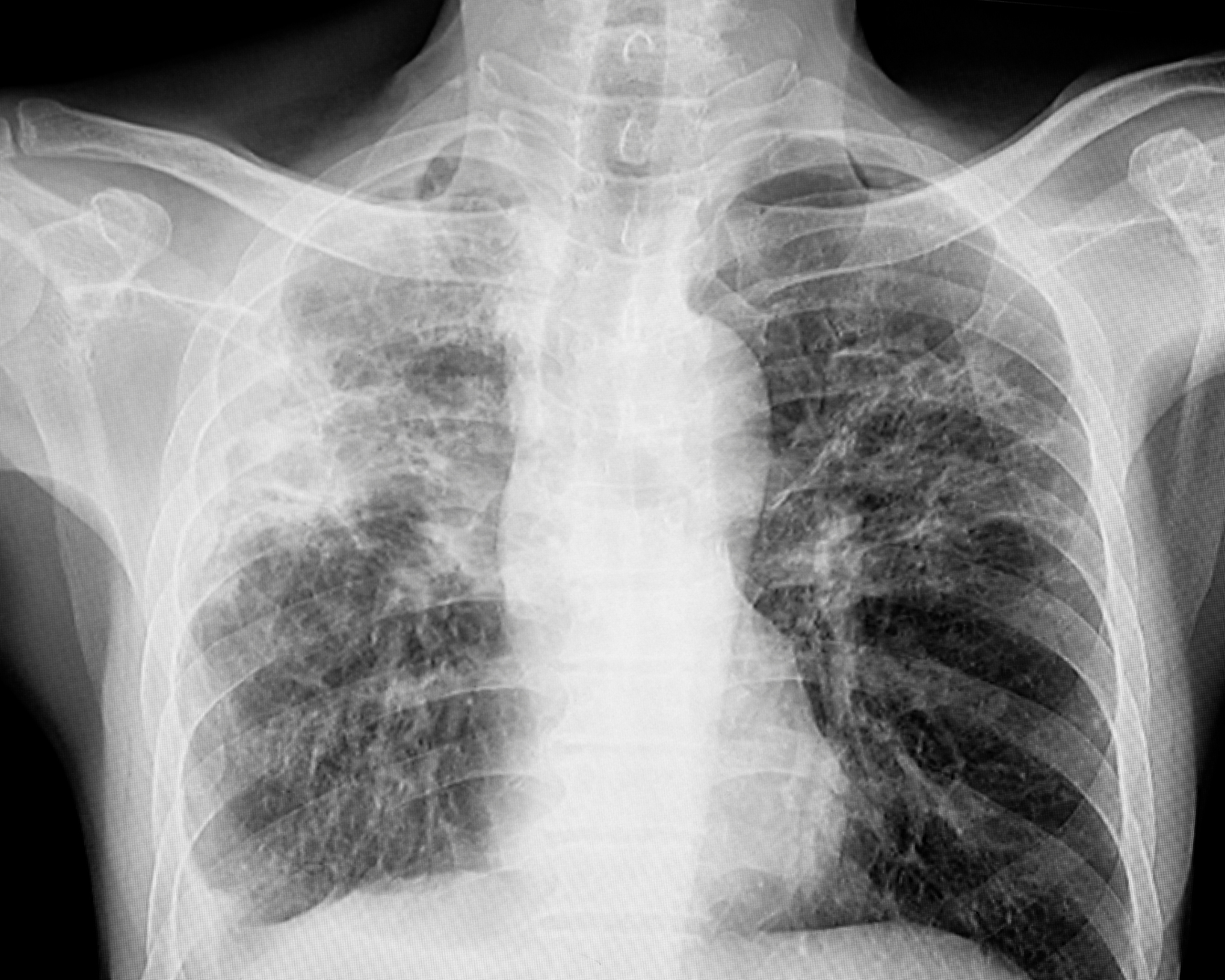Jack Mellom
Multimedia Fellow
produced by: Boston University School of Public Health
produced by: Boston University School of Public Health
When we call a disease like endometriosis benign, we are telling the world it doesn’t deserve to be understood.
In 2023, 11.5% of global cardiovascular deaths were due to impaired kidney function, highlighting the link between kidney and heart health.
PHPod sits down with Erica Walker, founder of the Community Noise Lab, to discuss the public health implications of noise.
Children who sustain concussions may be 25% more likely to be diagnosed with a mood disorder than those who do not experience a head injury.
Even trace amounts of arsenic present in drinking water can have measurable and unequal effects on infant health.
Join over 14,000 subscribers receiving our weekly email newsletter.
Public libraries are filling critical gaps in food and nutrition education following recent federal guideline changes and program cuts.
Breast milk carries molecular signals that reflect a mother’s past childhood trauma and may affect an infant’s temperament.
False claims about Medicaid eligibility for immigrants have been used to justify policy changes proposed in the OBBBA. Here are the facts.

Jack Mellom is an MPH candidate at Boston University School of Public Health, studying health communication and promotion. His passions include promoting public health through new mediums in hopes of making its dissemination digestible for all. He has a background in plant sciences, which has given way to his love of public horticulture being used to improve health, as well as his love of plants. His favorite tree is the Live Oak. Outside of his public health work, Jack loves all things music, his favorite artist being Vampire Weekend.
Multimedia Fellow
Jack Mellom is an MPH candidate at Boston University School of Public Health, studying health communication and promotion. His passions include promoting public health through new mediums in hopes of making its dissemination digestible for all. He has a background in plant sciences, which has given way to his love of public horticulture being used to improve health, as well as his love of plants. His favorite tree is the Live Oak. Outside of his public health work, Jack loves all things music, his favorite artist being Vampire Weekend.

Bernadette Carter-Salmond is an MPH candidate at Boston University School of Public Health, studying health communication and promotion. Some of her public health interests include mental health, sexual and reproductive health, substance use, and environmental justice. She is especially passionate about how public health issues intersect with vulnerable populations. In her free time, she enjoys watching anime and sports, meditating, and going to comedy shows.
Writing Fellow
Bernadette Carter-Salmond is an MPH candidate at Boston University School of Public Health, studying health communication and promotion. Some of her public health interests include mental health, sexual and reproductive health, substance use, and environmental justice. She is especially passionate about how public health issues intersect with vulnerable populations. In her free time, she enjoys watching anime and sports, meditating, and going to comedy shows.

Mallika Chimpiri is an MPH candidate at Boston University School of Public Health, studying epidemiology and biostatistics. Her interest in public health stems from a passion for clinical medicine and exploring how various determinants can intersect to manifest population-level disease. In her free time, Mallika can be found reading fiction, rewatching comfort shows, or taking portraits of her friends.
Writing Fellow
Mallika Chimpiri is an MPH candidate at Boston University School of Public Health, studying epidemiology and biostatistics. Her interest in public health stems from a passion for clinical medicine and exploring how various determinants can intersect to manifest population-level disease. In her free time, Mallika can be found reading fiction, rewatching comfort shows, or taking portraits of her friends.

Rowena Lindsay is an MPH candidate at Boston University School of Public Health, specializing in epidemiology & biostatistics and health communications. She is passionate about reproductive and environmental health. Her background is in science journalism, and as both a writer and public health practitioner, she aims to empower people to make informed decisions in all aspects of their lives. Outside business hours, you can find her hiking, practicing yoga, and listening to audiobooks while crafting.
Writing Fellow
Rowena Lindsay is an MPH candidate at Boston University School of Public Health, specializing in epidemiology & biostatistics and health communications. She is passionate about reproductive and environmental health. Her background is in science journalism, and as both a writer and public health practitioner, she aims to empower people to make informed decisions in all aspects of their lives. Outside business hours, you can find her hiking, practicing yoga, and listening to audiobooks while crafting.

Aidan Stotz is an MPH candidate at Boston University School of Public Health, studying epidemiology and biostatistics with a concentration in chronic and non-communicable diseases. He is passionate about cancer epidemiology, particularly pediatric cancer research, and examining how social determinants shape health inequities. His experience includes rural and urban mental health, data analysis, and social justice advocacy. In his free time, he enjoys reading, discovering new music, and thrifting.
Writing Fellow
Aidan Stotz is an MPH candidate at Boston University School of Public Health, studying epidemiology and biostatistics with a concentration in chronic and non-communicable diseases. He is passionate about cancer epidemiology, particularly pediatric cancer research, and examining how social determinants shape health inequities. His experience includes rural and urban mental health, data analysis, and social justice advocacy. In his free time, he enjoys reading, discovering new music, and thrifting.

Michael Stein is the dean ad interim at Boston University School of Public Health, editor-at-large for Public Health Post, and author, most recently of the books Me vs Us: A Health Divided, Accidental Kindness: A Doctor’s Notes on Empathy, and The Turning Point: Reflections on a Pandemic with Sandro Galea. He is a physician and health services researcher who is an international authority on the intersection of primary care, mental health, and substance use disorders.
Editor-at-Large
Michael Stein is the dean ad interim at Boston University School of Public Health, editor-at-large for Public Health Post, and author, most recently of the books Me vs Us: A Health Divided, Accidental Kindness: A Doctor’s Notes on Empathy, and The Turning Point: Reflections on a Pandemic with Sandro Galea. He is a physician and health services researcher who is an international authority on the intersection of primary care, mental health, and substance use disorders.

Monica L. Wang, ScD, MS, is an associate professor of community health sciences at Boston University School of Public Health and the executive editor of Public Health Post. A nationally recognized public health leader, researcher, author, and educator, Dr. Wang focuses on the social and structural drivers of health, chronic disease prevention, and community-engaged strategies to improve population well-being. Outside of work, she’s a runner, artist, baker, and proud mom. If she weren’t in public health, her dream job would be designing beautiful spaces as an interior designer or whipping up new recipes on her own Food Network show.
Executive Editor
Monica L. Wang, ScD, MS, is an associate professor of community health sciences at Boston University School of Public Health and the executive editor of Public Health Post. A nationally recognized public health leader, researcher, author, and educator, Dr. Wang focuses on the social and structural drivers of health, chronic disease prevention, and community-engaged strategies to improve population well-being. Outside of work, she’s a runner, artist, baker, and proud mom. If she weren’t in public health, her dream job would be designing beautiful spaces as an interior designer or whipping up new recipes on her own Food Network show.

Mallory Bersi joined Public Health Post after several years of working as a writer in public health communications. She received her MPH from Boston University School of Public Health with a focus in health communication and promotion and maternal and child health. When she is not getting lost in a good book or (overly) invested in TV characters, she enjoys experimenting with new recipes in the kitchen.
Managing Editor
Mallory Bersi joined Public Health Post after several years of working as a writer in public health communications. She received her MPH from Boston University School of Public Health with a focus in health communication and promotion and maternal and child health. When she is not getting lost in a good book or (overly) invested in TV characters, she enjoys experimenting with new recipes in the kitchen.

Jennifer Beard is a clinical associate professor of global health at Boston University School of Public Health and the senior editor of Public Health Post. She was a co-principal investigator for the multi-study Ghana Operations Research for Key Populations project, which focused on HIV prevention and other needs of young female sex workers and their intimate partners, prisoners, men who have sex with men, post-secondary female students, women who work in bars, people who inject drugs, and people living with HIV at risk of dropping out of antiretroviral therapy.
Senior Editor
Jennifer Beard is a clinical associate professor of global health at Boston University School of Public Health and the senior editor of Public Health Post. She was a co-principal investigator for the multi-study Ghana Operations Research for Key Populations project, which focused on HIV prevention and other needs of young female sex workers and their intimate partners, prisoners, men who have sex with men, post-secondary female students, women who work in bars, people who inject drugs, and people living with HIV at risk of dropping out of antiretroviral therapy.
Just keep an eye out for this tag Guest Author
Our guest authors come from a variety of backgrounds including academia, journalism, government, health, science, and thought leadership.
Want to write for us?
Learn More
Children who sustain concussions may be 25% more likely to be diagnosed with a mood disorder than those who do not experience a head injury.

The quality of one's romantic relationships—often shaped by attachment style and neuroticism—can greatly affect mental and physical health.

PHPod talks with Sarah Lipson, associate professor of health law, policy & management, about opportunities and barriers to finding community.

As sport participation advances, the mental stakes increase, with more than half of U.S. college athletes reporting being "very lonely."

Nationally, 21% of caregivers reported that their child had unmet mental health needs, and 46% reported difficulty in accessing care.

Adolescents with mood disorders were more likely to use cannabis and become dependent on it than their peers without mood disorders.

Public libraries are filling critical gaps in food and nutrition education following recent federal guideline changes and program cuts.

False claims about Medicaid eligibility for immigrants have been used to justify policy changes proposed in the OBBBA. Here are the facts.

Tarun Ramesh discusses how international medical graduates bolster rural health, and the policy challenges and opportunities they face.

ICE activities threaten public health by facilitating disease transmission, deterring people from seeking care, and disrupting schools.

Making a better world for future generations means we need to imagine doing better today so we can carve a path towards a more just tomorrow.

According to a recent study, 85% of United States refugees reported experiencing food insecurity in the past year.

PHPod sits down with Erica Walker, founder of the Community Noise Lab, to discuss the public health implications of noise.

Even trace amounts of arsenic present in drinking water can have measurable and unequal effects on infant health.

As neighborhood poverty increases, the share of UTIs that are linked to E. coli strains from contaminated meat also rises.

Thermal receipt paper contains chemicals that can be absorbed through the skin and may pose long-term health risks.

Maternal exposure to benzene, a carcinogen present in crude oil and gas, increases the risk of developing childhood leukemia.

More than 85% of the mental and physical health burden of climate change falls on children under the age of five.

Breast milk carries molecular signals that reflect a mother’s past childhood trauma and may affect an infant's temperament.

Travel has long been a barrier to abortion access, and the Dobbs decision has worsened these disparities. Telehealth is filling the gap.

In 2010, 57% of rural hospitals offered obstetric services. By 2022, over half of rural hospitals no longer had labor and delivery care.

Offering culturally aware support in the mother's preferred language can improve early breastfeeding outcomes.

With no national standard for sex education, the U.S. has a patchwork of policies that reflect local politics more than public health.

The One Big Beautiful Bill Act will reshape how women experience pregnancy in the U.S., threatening access to care and deepening disparities.

When we call a disease like endometriosis benign, we are telling the world it doesn’t deserve to be understood.

In 2023, 11.5% of global cardiovascular deaths were due to impaired kidney function, highlighting the link between kidney and heart health.

A new model estimates that U.S. cuts to global aid could result in 9 million more child TB cases and 1.5 million more child TB deaths.

Sitting less and moving more—even just 30 additional minutes per day—keeps muscles active and helps the body process blood sugar and fat.

About 40% of adults living with chronic pain had clinical depression and anxiety, compared to about 15% of people without chronic pain.

Christina Marie Dieli-Conwright studies how exercise after a cancer diagnosis can improve health, quality of life, and ultimately, survival.
Public Health Post is a daily population health publication written by Boston University School of Public Health students and leading public health experts. Every day, we spotlight critical intersections in public health and social justice to advance conversations about health in the United States.
Submit your pitch through our Contact page.
Learn more on the Fellowship page.
